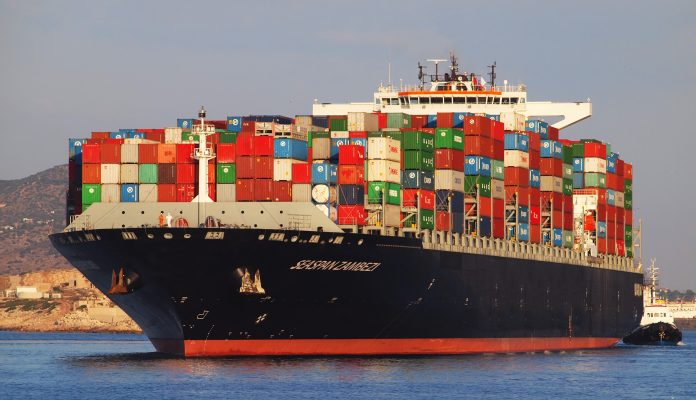Vessel owner Seaspan Corporation has become the latest major maritime company to sign a partnership agreement with the Mærsk Mc-Kinney Møller Center for Zero Carbon Shipping which commits the owner to a long-term collaboration in zero carbon research.
The company joins Haldor Topsoe, which signed an agreement in early March, and the Environmental Defense Fund who joined the group on 19 March.
Seaspan Corporation COO, Torsten Holst Pedersen, said, “The centre exemplifies the type of industry-wide collaboration that is required to achieve significant change. We’re excited to contribute our expertise, and to learn and benefit from the knowledge of our partners as we work to collectively develop the future of shipping”.
The Mærsk Mc-Kinney Møller Center was established last year with the aim to develop zero carbon technologies that could be used by the entire industry. One of the first projects announced was the research into solid oxide electrolysis cells (SOEC), the SOFC4Maritime, supported by a grant from EUDP, will seek to efficiently produce hydrogen from water, to be developed with Haldor Topsoe.
In addition the group will work on renewable resources – such as biomass and green electricity – to energy carriers and fuels.
Meanwhile, the Environmental Defense Fund (EDF), a non-profit organisation, collaborate with its partners within the centre to develop a pathway to zero carbon shipping by 2050. As part of its mission EDF links science, economics, law, and innovative private-sector partnerships to bring together the various legal and other frameworks that will smooth the path to wider take-up of new developments.
In addition, the collaboration will “include activities on the sustainability assessment and life cycle analyses of future fuels and technologies as well as their impact potential and potential constraints,” said EDF.
“The centre is well placed to support robust policy pathways towards decarbonisation and drive the deployment of zero emissions vessels,” said Kelley Kizzier, Vice President for Global Climate at EDF.
Mærsk Mc-Kinney Møller Center CEO Bo Cerup-Simonsen argued that to develop a credible transition strategy for the industry to zero carbon emissions, there needs to be, “A deep understanding of the shipping business and dynamics,” he added, that “enabling an acceleration of the development of the overall transition narrative as well as tomorrow’s solutions for shipping.” And to achieve that collaboration is the only way forward.
The centre emphasises the criticality of collaboration to achieve the industry’s goals. The acceleration of research and development of viable technologies requires “a co-ordinated effort within applied research [which] is needed across the entire supply chain. Industry leaders play a critical role in ensuring that laboratory research is successfully matured to scalable solutions matching the needs of industry. At the same time, new legislation will be required to enable the transition towards decarbonisation.”

 Tiếng Việt
Tiếng Việt

